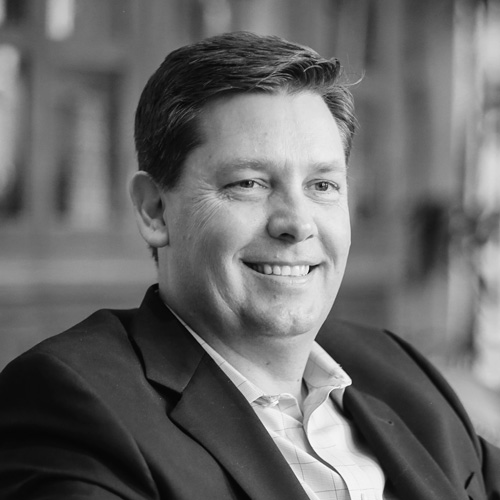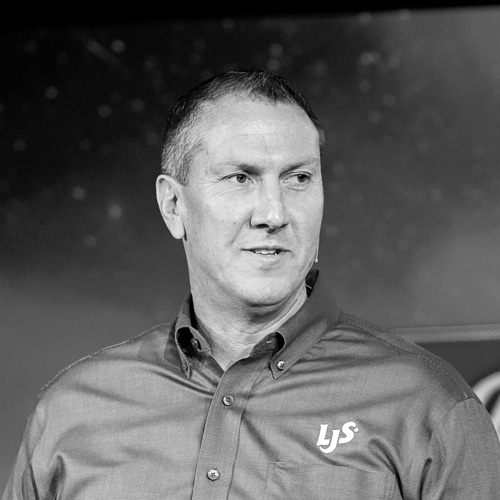When you work for an organization such as Special Olympics, there’s inspiration around every corner. Sometimes it can come from the most unexpected places. This past December, Angela Ciccolo, the nonprofit’s chief legal officer and secretary, encountered two young, female athletes in Abu Dhabi. Although their story is motivating, it was the girls’ mother who made a lasting impression. “I met a mother dedicated to being an advocate for her two daughters with intellectual disabilities,” Ciccolo says. “She believes in them and is fighting to make a beautiful world where they can live full lives.”
The mother is building that world, in part, through Special Olympics. Abu Dhabi will host the 2019 Special Olympics World Games, where those very same daughters hope to compete in their favorite event: bowling. It’s stories like these that resonate the most with Ciccolo as she leads a lean department dedicated to helping Special Olympics fulfill its mission to provide competitive sports opportunities for children and adults with intellectual disabilities, giving them the chance to become physically fit as they build friendships and experience teamwork.
Ciccolo—a mother of three—has built her career on overcoming obstacles and then helping others do the same. She started life as one of the few black children in her Indiana neighborhood. And despite an economically disadvantaged upbringing, she was able to attend Georgetown University, where she studied international economics and commerce before enrolling in the university’s respected law program.
After starting her legal career in private practice, Ciccolo joined the NAACP in 2000 as assistant general counsel. In 2008, she became the distinguished civil rights organization’s first female general counsel. In that role, she did more than manage all internal and external legal affairs; she led grassroots initiatives and helped orchestrate demonstrations, marches, and protests to help stop injustices and raise awareness of issues affecting marginalized and underserved citizens.
During her tenure at the NAACP and presently, Ciccolo has served on the US Commission on Civil Rights Virginia State Advisory Committee. Additionally, she created a law fellow program that has helped women and minority students enter the legal profession. “Somebody gave me an opportunity a long time ago,” she says. “That opportunity has made a huge difference in my life. So, now, I try to create opportunities for others to seize.”
“You can make the best impact when you’re leading empowered people who are committed to a single, important vision.”
There have indeed been challenges along the way, but Ciccolo is no stranger to adversity. “I was often the first minority child attempting to do something,” she says. “I just kept fighting because all I wanted was to have the same chance as everyone else.” Today, she’s helping children and adults with intellectual disabilities develop and demonstrate their abilities through athletics while increasing awareness of their abilities and needs.
Eunice Kennedy Shriver created the organization in 1968. Now, Special Olympics has more than five million athletes, one hundred thousand annual events, and programs in 170 countries. Ciccolo and her team concentrate on all legal work, including contracts and employment matters, in addition to issues related to compliance, risk management, fundraising, data privacy, and governance. Ciccolo has also created a legal internship program at Special Olympics similar to the one she implemented at the NAACP. Those interns get real, hands-on work with the nonprofit that often bears fruit many years later.
“I think people see the value in what we do for people and the community, and that motivates them to stay connected with us,” Ciccolo says. Many Special Olympics interns join law firms that make significant financial contributions or offer pro bono legal services to the organization.
As Ciccolo heads her team, she asks each member to collaborate and communicate constructively. Most importantly, however, she wants her employees to treat one another with respect. Ciccolo—who started working at age fourteen—knows what it’s like to work at all levels of an organization. “I’ve learned about hard work, but I’ve also learned how to be a good listener and how to be a good team member,” she explains. “You can make the best impact when you’re leading empowered people who are committed to a single, important vision.”
A commitment to diversity and inclusion also helps Ciccolo be an effective leader. She’s cochair of a new Special Olympics diversity and inclusion task force with Harvard University law professor and Special Olympics board member, William Alford. By the end of the year, the group will create a tool kit that program leaders can use to enhance diversity in the communities they serve. “Special Olympics is an organization for all people, and we want that to be true for our athletes, our volunteers, our employees, and everyone else that encounters us,” Ciccolo says. “Diversity and inclusion initiatives help us remove barriers at all levels to ensure that everyone has a place in the Special Olympics family.” Recently, her legal team welcomed a Special Olympics employee with an intellectual disability. Ciccolo says she hopes the move will convince other employers to consider hiring more people with intellectual disabilities and people with different backgrounds and experiences.
Special Olympics does more than give athletes the chance to compete. Some use the organization’s health programs to get eyeglasses for the first time. Others take advantage of educational opportunities to become leaders in their schools and communities or to earn jobs at the highest levels of business and government.
For Ciccolo, the chance to empower athletes and work on behalf of a large nonprofit is rewarding. “I love that I can provide opportunities and change lives through what I do,” she says.
In the past five years, Special Olympics has added nearly one million new athletes while expanding its global footprint. By providing sound legal work and demonstrating the values of diversity and inclusion, Ciccolo is empowering a new generation of athletes with intellectual disabilities to demonstrate what they can achieve.

